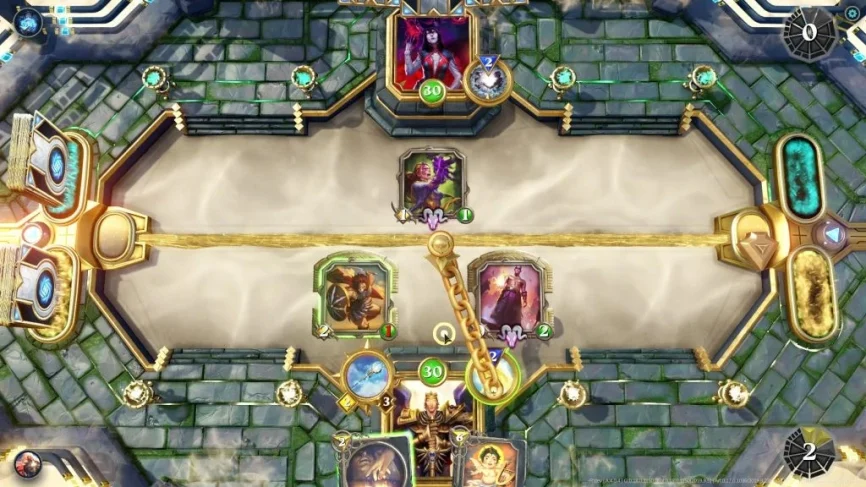Southeast Insights
Your go-to source for news and information from the vibrant heart of Shenyang.
Leveling Up: Why Cryptocurrency is the Next Player in Gaming
Discover how cryptocurrency is transforming gaming and why it’s the future of play. Don’t miss out on the next big thing in the gaming world!
Exploring the Future: How Cryptocurrency is Transforming the Gaming Landscape
The gaming industry is undergoing a seismic shift with the advent of cryptocurrency, irrevocably altering how players engage with their favorite titles. With blockchain technology empowering decentralized platforms, gamers can now own, trade, and sell in-game assets like never before. This transformation fosters a sense of ownership that traditional gaming models have often lacked, as it empowers players to control their virtual assets. Furthermore, the integration of cryptocurrencies as a payment method in gaming ecosystems enhances accessibility, allowing players from different financial backgrounds to participate and invest in their gaming passions.
As we look to the future, the convergence of cryptocurrency and gaming is set to create new economic opportunities for both developers and players. The rise of games that incorporate play-to-earn mechanics enables players to earn real-world assets while enjoying their favorite pastime, potentially changing the definition of gaming itself. By embracing this innovative approach, developers can cultivate vibrant communities and sustainable revenue models, driving engagement and long-term player retention. As these trends continue to evolve, the gaming landscape will undoubtedly become more dynamic, creating a rich tapestry of experiences fueled by the transformative power of cryptocurrency.

Counter-Strike is a popular tactical first-person shooter game that has captivated millions of players around the world. Players often engage in intense battles, where strategy and teamwork are crucial for success. For those looking to enhance their gaming experience, they might want to check out the duelbits promo code for unique in-game bonuses.
Level Up Your Game: Understanding the Role of NFTs and Cryptocurrencies in Gaming
As the gaming industry continues to evolve, NFTs (Non-Fungible Tokens) and cryptocurrencies are becoming increasingly significant. They are not just buzzwords; they represent a fundamental shift in how games are developed, played, and monetized. Players can truly 'own' their in-game assets thanks to NFTs, which are unique digital tokens that can represent anything from characters to weapons, providing players with real value. This ownership allows gamers to trade or sell their assets in a way that traditional gaming models do not allow, creating new economic opportunities within the gaming ecosystem.
Understanding the role of cryptocurrencies in gaming is equally important. Cryptocurrencies serve as the backbone for many transactions within this new digital landscape. They allow for seamless, decentralized payments, enabling players from all over the world to participate without the constraints of traditional banking systems. As more games adopt blockchain technology, the potential for player-driven economies continues to grow. To fully leverage these innovations, gamers must stay informed about the latest developments and trends in both NFTs and cryptocurrency, ensuring they can maximize their engagement and investment in this exciting new world.
Is Cryptocurrency the Key to Revolutionizing In-Game Economies?
The rise of cryptocurrency has sparked conversations around its potential to revolutionize in-game economies. Traditional gaming models often rely on a centralized currency, leaving players with limited control over their assets and the ability to trade freely. However, by integrating blockchain technology and decentralized currencies, developers can create a more equitable playing field. This transformation allows players to truly own their in-game items, as these assets become secure, provably scarce, and transferable across different games. This novel paradigm not only enhances player engagement but also introduces new economic dynamics within virtual worlds.
Moreover, cryptocurrency can introduce innovative monetization strategies for game developers. For instance, leveraging tokenomics can enable developers to create unique ecosystems where players earn tokens through gameplay, which can then be spent or traded within the game's economy. This system encourages player investment and loyalty, as players feel a deeper connection to their in-game rewards. Additionally, it opens up opportunities for cross-game interactions and collaborations, further enriching the gaming experience. As the industry evolves, integrating cryptocurrency into in-game economies may prove to be a pivotal step towards fostering sustainable and thriving virtual communities.